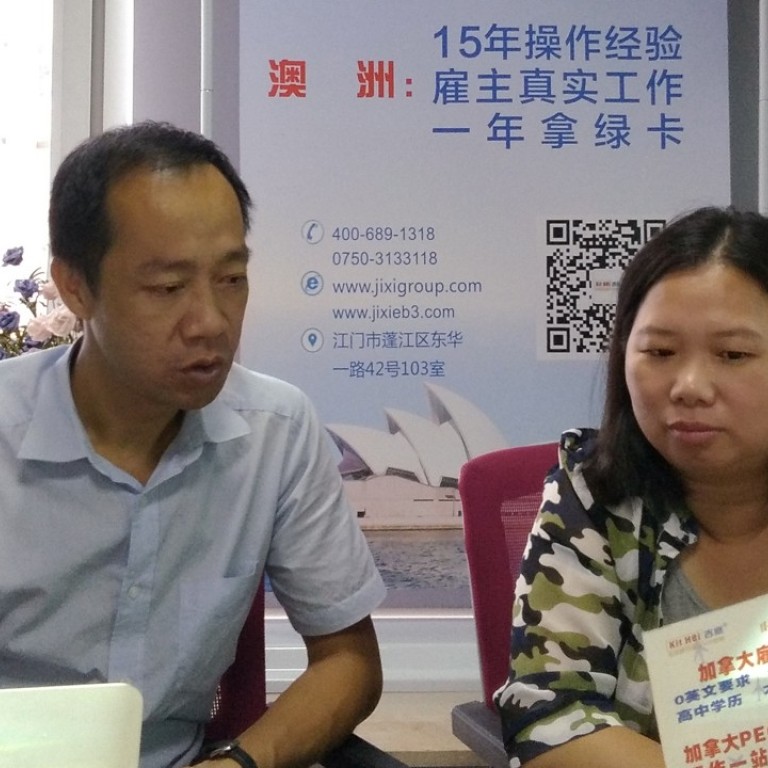
Returnees from Venezuela eager to leave China again
Jobs are hard to find for people who’ve spent years overseas
While life in Venezuela may have become unbearable, the thousands of people who have returned to Enping, in South China’s Pearl River Delta, in the past few years are finding it can also be uncertain back home.
“About 50,000 to 60,000 Chinese have come back from Venezuela to Enping but they’ve received little help from the local authorities,” said Mingli Zhong, who lived in Venezuela for two decades before returning to Enping this year.
“Some have used their savings to invest in properties and restaurants in Jiangmen. But many of us are trapped here and jobless. We are looking for a way to move overseas again.”
Local developers have sensed the opportunities offered by returnees from Venezuela, and property agents are offering discounts on Spanish-style villas and gifts for those able to show airline tickets from Venezuela.
But Zhong said Enping was still poor and undeveloped compared to other parts of the delta.
“It ‘s hard for people like us, at our age, to find work as a farmer or an employee on the mainland,” he said. “We’ve been living overseas for years and got used to that local culture and society.
“I miss Venezuela so much. Latin American countries have seen cycles or rise and fall every few years. But it’s so dangerous this time. We had to leave.”
David Hou decided to stay in Venezuela but his wife has been in Canada, which she entered with a tourist visa, since June.
“She will stay there and won’t be back in the coming months,” he said. “She can at least earn a few thousand US dollars working there illegally. We need the income to support our children and family.”
His sister, Mey Hou, and Zhong said they were not interested in working illegally overseas but were looking into work visas that would allow them to live permanently in the United States.
“Employment-based (EB) immigrant visas might be a possible path to an American green card for these people from Venezuela,” said Liu Zhenbiao, who runs Kit Hei, a company in Jiangmen that provides emigration advice and assistance.
America’s EB-3 immigrant visas allow certain professional workers, skilled workers, and unskilled workers to obtain a US green card, which gives them permanent resident status.
The EB-3C subcategory is for unskilled foreigners able to work as babysitters, housekeepers, abattoir workers, caretakers and gardeners, among other occupations. However, there is a limit of 10,000 such visas a year, and applicants can expect to wait for at least seven years before being granted a visa.
“Many people from Venezuela have come to ask about processing of visa applications,” Liu said. “They are trying any possible way to emigrate again.”

